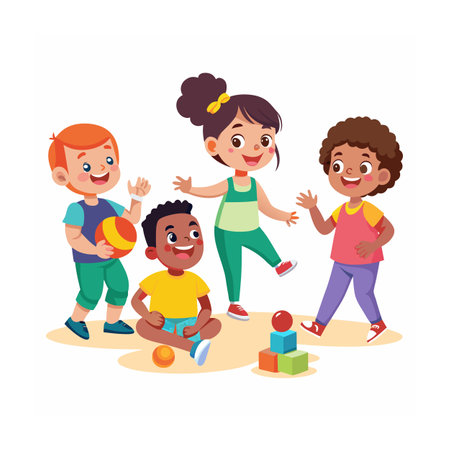Introduction to Multicultural Parenting in the UK
When I first became a parent in the UK, I quickly realised that raising a child here is a beautifully complex journey, shaped by both the diverse society we live in and the traditions we carry from our own backgrounds. Walking through my local park, I’d often hear different languages mixing with British accents at the playground—children chatting in Polish, Urdu, Mandarin and English all at once. It made me reflect on how multicultural families like mine are now a common thread in British life.
As a new mum, I felt both excitement and pressure. On one hand, I wanted my child to feel at home in British society, picking up local customs and growing up with that familiar sense of British humour. But on the other hand, I was determined not to let go of our family’s heritage—the food, language, and values that make us who we are. Sometimes it felt like a balancing act: Would bedtime stories be read in English or my mother tongue? Should we celebrate Bonfire Night alongside our own traditional holidays?
Navigating this blend of cultures wasn’t something I had fully prepared for before becoming a parent. But as I’ve learned from talking with other parents at school gates and community centres, I’m not alone. Many families across the UK are weaving together threads from their own backgrounds with those of British culture, creating unique parenting styles along the way. In this article, I’ll share some of what I’ve discovered about multicultural parenting here—both the joys and challenges—and offer some reflections from my own experience as we try to give our children the best of both worlds.
Understanding British Parenting Approaches
As a parent raising children in the UK, Ive found that understanding local parenting styles is essential for blending my own heritage with British approaches. British parenting is shaped by certain philosophies and routines that reflect the country’s core values. Here’s a closer look at what makes British parenting unique, and how these elements might fit into a multicultural household.
Key Philosophies of British Parenting
Many British parents place great emphasis on fostering independence from an early age. Children are encouraged to make choices and express their opinions—whether it’s picking their own clothes or sharing thoughts during family discussions. Open communication is highly valued, with parents making time to listen and validate their child’s feelings. This approach helps build confidence and emotional resilience.
Typical Daily Routines in British Families
| Time | Activity | Purpose |
|---|---|---|
| 7:00 am | Wake up & breakfast together | Promotes routine and family bonding |
| 8:30 am | School/nursery drop-off | Encourages punctuality and responsibility |
| 3:30 pm | Pick-up & after-school activities | Supports independence and social skills |
| 5:30 pm | Dinner as a family | Facilitates open communication and connection |
| 7:00 pm | Bedtime routine (bath, story, bed) | Cultivates stability and healthy sleep habits |
The Role of Early Years Childcare
The British system often involves nursery or childminder care from a young age, partly due to both parents working but also as a way to nurture social development. This can feel quite different if you’re used to extended family support or keeping little ones at home longer. However, many families find that early childcare helps children adapt socially, learn routines, and develop new skills in a safe environment.
In summary, embracing aspects like independence, structured routines, and open dialogue can help blend your own cultural values with those commonly found in the UK. By understanding these British parenting foundations, it becomes easier to create a balanced, multicultural approach that benefits both you and your child.

3. Defining Heritage Parenting Styles
When raising children in the UK while holding onto your cultural roots, it’s impossible not to notice how heritage parenting styles can both diverge from and intersect with British norms. From my own experience as a first-generation immigrant parent, I often find myself reflecting on the traditional values and expectations my family carried from our home country compared to those common among my British friends. For example, respect for elders and emphasis on academic achievement were deeply ingrained in my upbringing—my parents expected obedience without question and involvement of extended family in major decisions. In contrast, many British parents I’ve met encourage open dialogue with their children, promoting independence from an early age.
In our multicultural community, these differences are often a topic of conversation among fellow parents. One friend from a South Asian background shared how her parents’ approach to discipline was much stricter than what she sees in her son’s British school friends’ homes. Yet she also noticed that both cultures value kindness and honesty, just expressed in different ways. Another parent from an Eastern European family talked about balancing the importance placed on family gatherings and traditions with her children’s desire to fit in with their British peers who might not share the same customs or expectations.
While there are distinct differences—such as the level of parental control or involvement—there are also beautiful overlaps. Both heritage and British parenting styles often prioritise the well-being and happiness of the child, just through different means. Navigating these similarities and differences has become part of my daily life, shaping a unique blend of values that reflects both my cultural background and my family’s new home in the UK.
4. Common Challenges and Emotional Journeys
As a new parent navigating multicultural parenting in the UK, one of the most overwhelming aspects can be the clash between British norms and those from your heritage culture. This balancing act is not just logistical but deeply emotional, as you try to create a cohesive family identity while honouring both backgrounds. Here are some common struggles many parents like me face, along with my honest reflections.
Conflicting Advice from Extended Family
It’s natural for grandparents, aunties, and uncles from both sides to offer advice—sometimes unsolicited! British approaches may encourage independence and gentle discipline, while your own parents might favour more traditional methods or communal child-rearing practices. At times, it can feel like you’re caught in the middle, trying to respect everyone yet stay true to what feels right for your child. I’ve found that open conversations help, but there are still moments when it feels overwhelming.
| Situation | British Approach | Heritage Approach | Emotional Impact |
|---|---|---|---|
| Bottle feeding vs breastfeeding | “Fed is best” attitude, less pressure on method | Strong preference for breastfeeding due to tradition/health beliefs | Guilt, confusion over best choice |
| Weaning foods | Puréed veg, baby-led weaning popular | Specific cultural foods introduced early | Anxiety about allergies or rejection of heritage foods |
| Sleep routines | Encourage self-soothing and independent sleep | Co-sleeping or shared rooms more common | Tension over safety and closeness vs independence |
Cultural Misunderstandings at Nursery or School
Sending your child to nursery in the UK introduces another layer of complexity. Sometimes staff may not understand why your child brings certain foods for lunch or wears particular clothing for cultural reasons. I remember feeling anxious during my daughter’s first “show and tell,” worrying if her favourite festival costume would make her stand out too much—or worse, be misunderstood. Teachers here are usually supportive, but it does take extra effort to communicate the significance of our traditions.
The Emotional Adjustment: Blending Two Worlds
The emotional journey as a multicultural parent is intense. There’s pride in passing down cherished traditions, but also fear of alienating your child or making them feel “different.” On tough days, I question whether I’m getting the mix right—am I giving my son enough of my heritage? Is he fitting in with his British friends? The reality is that blending cultures means embracing imperfection and being willing to learn alongside your child.
Coping Strategies I’ve Found Helpful:
- Seeking out multicultural playgroups or community events for support and shared understanding.
- Having honest discussions with my partner about which values matter most from each side.
- Giving myself permission to adapt traditions so they work in our current life, even if it looks different than how I was raised.
Navigating these challenges isn’t easy, but every small step towards blending cultures helps build a unique family story—one that celebrates both where we come from and where we are now.
5. Practical Strategies for Blending Cultures
As a new parent raising children in the UK while honouring your own cultural roots, everyday life is often a balancing act. Over the years, I’ve learned that blending British and heritage parenting approaches doesn’t need to feel overwhelming—sometimes, it’s about small, consistent steps. Here are some tried-and-tested strategies from my own family life and other multicultural parents around me.
Bilingual Bedtime Stories
Reading bedtime stories in both English and your native language is a gentle way to nurture bilingualism. We keep classic British books like The Gruffalo alongside picture books from my childhood on our bookshelf. It’s become a special part of our routine—one night we read in English, the next in my heritage language. This not only supports language development but also creates meaningful connections to both cultures.
Inclusive Holiday Celebrations
British holidays, from Bonfire Night to Christmas, can be wonderfully inclusive if you weave in traditions from your own background. For example, during Diwali, we invite our neighbours to join us for sweets and stories, just as we enjoy mince pies at their Christmas gatherings. Sharing food, music, and customs helps children see that celebrating diversity is something joyful and normal in British society.
Building Mixed-Culture Friendships
Encouraging your child to form friendships with children from a variety of backgrounds is essential. Playgroups and school events are great starting points; I always try to connect with other parents by volunteering at school fairs or attending community festivals. These friendships teach kids empathy and help them feel secure in their identity—it’s reassuring for them (and us) to see other families navigating similar journeys.
Respectful Boundary-Setting with Family
One of the trickiest parts is managing expectations from extended family—especially when opinions about parenting clash. I’ve found it helpful to gently explain why certain boundaries matter for our family’s well-being, using examples from daily British life (like bedtime routines or screen time limits). Being clear yet respectful helps maintain harmony while staying true to our parenting values.
Final Thoughts: Embracing Your Unique Blend
No two multicultural families are exactly alike—what matters most is finding rhythms and rituals that reflect both your heritage and the best of British life. By blending languages, traditions, friendships, and boundaries thoughtfully, you’ll give your child the gift of belonging fully in both worlds.
6. Raising Confident, Bicultural Children
One of the most rewarding aspects of blending British and heritage parenting styles is seeing our children grow into confident, bicultural individuals. As a mum raising my little one in the UK, I often reflect on how my child navigates both worlds—enjoying fish and chips at school lunch, but also sharing stories about Lunar New Year with classmates. This unique blend isn’t just enriching; it opens up countless opportunities for our children to thrive in an increasingly multicultural Britain.
The Benefits of a Blended Identity
Children raised with both British values and their family’s cultural traditions gain a broader perspective on life. They become skilled at adapting to different environments and develop empathy for people from all walks of life. Many parents in our local parenting group have shared how their kids feel proud introducing friends to Diwali celebrations or learning Welsh phrases alongside Mandarin. These experiences make children more open-minded and resilient, equipping them with social skills that are highly valued in British society.
Success Stories from the UK Parenting Community
There are so many inspiring examples here in the UK. Take the Ahmed family from Birmingham: their son combines his love for Premier League football with reciting poetry in Urdu at community events. Or consider Sophie, whose parents moved from Hong Kong; she confidently switches between English and Cantonese, helping her classmates understand different cultures. Such stories remind us that our efforts to blend parenting styles really do pay off—our children can be bridges between cultures.
Encouragement for Parents
If you sometimes worry about whether you’re getting this balance right, remember you’re not alone. Many parents feel uncertain at first, but every small step counts—from sharing traditional stories at bedtime to encouraging kids to join local clubs or language classes. The UK is a wonderfully diverse place, and there’s support everywhere: multicultural playgroups, bilingual nurseries, and friendly neighbours who appreciate cultural exchange. So keep going! Your child’s blended identity is their superpower—and your openness as a parent is what makes it possible.


